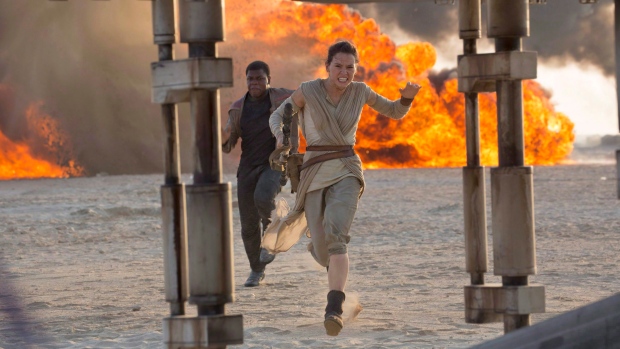Aug 9, 2017
Disney shares fall as streaming plans spook investors
, Reuters

Walt Disney Co's (DIS.N) plan to launch its own digital movie and sports services means the world's largest entertainment company must learn how to attract streaming video subscribers and keep them hooked in a highly competitive market.
In a major strategic shift, Disney announced on Tuesday it would launch a sports-themed ESPN streaming service next year followed by a similar offering with Disney and Pixar movies and television shows in 2019.
While many analysts lauded the effort's long-term goals, uncertainty about Disney's ability to make up for lost revenue from Netflix Inc (NFLX.O) and other sources worried investors. Disney shares closed down four per cent on Wednesday.
Most believe Disney needed to respond to the migration of viewers from pay-TV packages to digital options sold a la carte, a shift that has hurt the company's cash cow, ESPN.
But Disney will encounter new hurdles selling directly to consumers. The company has relatively little experience with selling subscriptions, although it does operate a digital service in Britain called DisneyLife.
It will also have to invest in technology. As part of the plan announced on Tuesday, Disney said it would spend US$1.58 billion to acquire majority ownership of BAMTech, the company that streams professional U.S. baseball and will provide the tech powering the new streaming services.
Disney will stop providing new movies to Netflix starting in 2019. At the time the deal was announced in 2012, analysts estimated Disney would reap roughly US$350 million a year from Netflix.
If Disney charged US$5 per month, it would need about 5.8 million subscribers to match the income from Netflix, or 2.9 million subscribers at US$10 per month.
"The Disney product is taking a very successful and settled part of the business model (pay TV economics for films) and putting it at risk in the hopes of building an asset with more long-term value," Cowen and Co analysts wrote in a research note.
START LOW
Netflix, the dominant streaming service, has amassed 104 million customers worldwide over a decade. CBS Corp's (CBS.N) newer digital subscriptions, CBS All Access and its Showtime offering, are on track to have a combined four million subscribers by the end of this year, the company said on Monday.
Potential customers for Disney's movie subscription include roughly 25 million U.S. households with children ages two to 14, plus up to 60 million Disney and Pixar fans, according to Moody's Investors Service analyst Neil Begley.
"It takes time to build up," Begley said. "If within five to six years they were able to get even 15 to 20 per cent of that footprint, that would be considered fairly successful."
Disney will likely start with a low price to entice users to try the new offering and could eventually charge between US$6 and US$9 per month, Begley estimated.
The company will incur additional costs including an undisclosed investment in exclusive content, plus spending on technology, marketing and customer service. Still, it will be able to spread those costs across multiple streaming services.
"They have significantly more upside here," Begley said.
KEEP THE CUSTOMER SATISFIED
Disney also will have to keep customers after they sign up. Unlike pay TV, streaming services can easily be canceled online at any time.
Nineteen per cent of U.S. broadband households canceled at least one streaming service in the past year, compared with three per cent that dropped a pay-TV service, according to data from a Parks Associates survey.
Still, with a stable of popular franchises such as "Frozen" and "Toy Story," Disney holds a strong position to keep viewers.
"Disney has an advantage that they are a recognized brand," Parks Associates analyst Brett Sappington said. "People will come to pay for that."
Disney believes its new approach will deliver "substantially greater" profits and revenue over the long term than its current business models, Chief Executive Bob Iger said on a post-earnings conference call.
One advantage of BAMTech is that it will let Disney learn more about the behavior of its fans in order to tailor offerings, Iger said.





